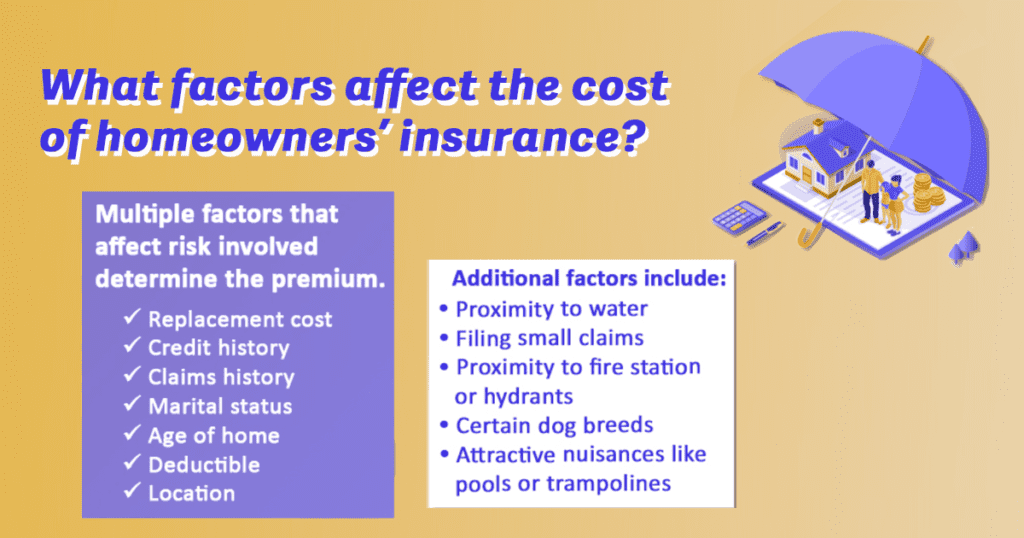Did you know that not all insurance policies are created equal? When it comes to protecting yourself and your assets, it’s important to make informed decisions. In this article, we’ll explore some types of insurance that may not be recommended for everyone. By understanding the potential risks and limitations of certain policies, you can ensure that you’re making the best choices to safeguard what matters most to you. Whether you’re a new homeowner or a small business owner, keep reading to discover which types of insurance you may want to reconsider.
Health Insurance
Unnecessary Coverage
When it comes to health insurance, it’s important to carefully consider the coverage you truly need. While having comprehensive health insurance can provide peace of mind, it can also come with unnecessary coverage that you may never actually use. For example, some health insurance plans may include coverage for alternative therapies such as acupuncture or chiropractic services, which may not be relevant to your personal healthcare needs. By opting for an insurance plan that only includes the essential coverage you require, you can potentially save on premiums and avoid paying for services you are unlikely to use.
High Premiums
One of the most common concerns with health insurance is the high cost of premiums. Health insurance premiums can often be a significant financial burden, especially for individuals and families with limited budgets. High premiums can eat into monthly expenses and may leave you with less disposable income to spend on other essential needs. It’s essential to carefully evaluate the premium costs associated with different health insurance plans and choose one that offers adequate coverage at a reasonable price. Remember, it’s not always necessary to opt for the highest premium plan to receive adequate healthcare coverage.
Limited Coverage
While health insurance aims to protect you from unexpected medical expenses, it’s important to be aware of the limitations in coverage that certain plans may have. Some health insurance policies may exclude coverage for pre-existing conditions, leaving you responsible for the costs associated with ongoing treatments or medications. Additionally, certain procedures or treatments may not be covered by standard health insurance plans, such as cosmetic surgery or elective procedures. Understanding the limitations of your health insurance coverage can help you make informed decisions about your healthcare needs and ensure you have a plan that best meets your requirements.
Extended Warranty Insurance
Limited Value
Extended warranty insurance is often offered when purchasing electronics, appliances, or vehicles. While it may seem like a good idea to protect your investment, extended warranty insurance may provide limited value in many cases. Most products already come with a manufacturer’s warranty that covers any defects or issues that may arise within a specified period. Additionally, many credit cards offer extended warranties on purchases made using the card. Therefore, paying for an additional extended warranty insurance policy may be unnecessary and may not provide significant additional value.
Overlapping Coverage
Another issue with extended warranty insurance is the potential for overlapping coverage. As mentioned earlier, many credit cards already offer extended warranties on purchases, meaning you may already have coverage without even realizing it. Before considering extended warranty insurance, it’s important to review the terms and benefits of any existing warranties or protections you may already have through your credit card or the product manufacturer. This will help you avoid paying for duplicate coverage and potentially save on unnecessary insurance expenses.
High Markup
Extended warranty insurance is often sold with a high markup, meaning you may end up paying significantly more than the actual value of the coverage you’re receiving. Salespeople may try to convince you of the great value and peace of mind that extended warranty insurance provides, but it’s crucial to consider the actual cost versus the likelihood of needing the coverage. In many cases, the cost of an extended warranty insurance policy may far exceed the cost of any repairs or replacements you may require during the coverage period. Before purchasing extended warranty insurance, carefully weigh the costs and benefits to determine if it’s truly worth the investment.


Credit Card Insurance
Expensive Premiums
Credit card insurance is designed to provide financial protection in the event of job loss, disability, or death, allowing you to continue making minimum payments on your credit card balance. However, credit card insurance can come with expensive premiums that add to your monthly financial obligations. These insurance premiums can be an additional burden, particularly for individuals or families on tight budgets. It’s essential to assess the cost of credit card insurance and consider whether the premiums are reasonable compared to the potential benefits it offers.
Limited Coverage
While credit card insurance may sound like a convenient way to protect yourself from financial hardships, it’s important to be aware of the limitations of this type of coverage. Credit card insurance often has exclusions and restrictions that may limit the circumstances in which you can make a claim. For example, job loss coverage may only apply if you were involuntarily terminated, leaving you ineligible if you quit your job or were self-employed. Understanding the extent of coverage provided by credit card insurance is crucial to ensure you’re not paying for benefits that may not be applicable to your situation.
Duplication of Benefits
Another aspect to consider with credit card insurance is the potential for duplication of benefits. You may already have some form of disability or life insurance that provides similar coverage to what credit card insurance offers. By paying for credit card insurance on top of existing insurance policies, you may be duplicating coverage unnecessarily and incurring additional expenses. It’s crucial to review the terms and benefits of any existing insurance policies you have to determine if credit card insurance is truly necessary or if you already have comparable coverage in place.
Flight Insurance
Limited Risk
Flight insurance is often marketed as a way to protect yourself from potential mishaps while traveling. However, the risks associated with air travel are relatively low, making flight insurance an unnecessary expense for most individuals. Airlines have strict safety regulations in place, and incidents or accidents during flights are incredibly rare. Additionally, many credit cards offer travel insurance benefits that may already cover you in the event of trip cancellation, lost luggage, or medical emergencies while traveling. It’s important to assess the actual risk involved in flying before deciding to purchase flight insurance.
Expensive Premiums
Flight insurance premiums can be quite expensive compared to the actual cost of the flight tickets. The premiums you pay for flight insurance may far exceed the financial loss you would incur if something were to happen to your flight. In many cases, the cost of flight insurance can be better spent on other travel-related expenses or saved as an emergency fund for unexpected costs during your trip. Before buying flight insurance, carefully consider the cost of the premiums and weigh them against the likelihood of needing to make a claim.
Limited Coverage
Flight insurance typically offers limited coverage that may not provide significant benefits in the unfortunate event of a flight-related incident. Some flight insurance policies only cover accidental death or injury, excluding other potential risks such as trip cancellation or lost baggage. Moreover, the loopholes and restrictions in flight insurance policies may make it challenging to successfully file a claim. Before purchasing flight insurance, carefully review the terms and conditions to ensure you understand the extent of coverage and any limitations that may apply.


Accidental Death Insurance
Limited Coverage
Accidental death insurance, also known as AD&D insurance, is designed to provide financial protection in the event of death resulting from an accident. While it may seem like a good way to ensure your loved ones are taken care of, it’s important to consider the limitations of this type of coverage. Accidental death insurance only pays out if the insured individual’s death is determined to be the direct result of an accident. This means that deaths resulting from natural causes, illness, or self-inflicted harm may not be covered by this insurance. This limited coverage may not adequately protect your loved ones in all unfortunate circumstances.
Ineffective Insurance
Accidental death insurance, as the name suggests, only provides coverage in the event of accidental death. While accidents can happen, they are relatively rare compared to other causes of death such as illness or disease. By investing in accidental death insurance, you may not be adequately protecting yourself against the most common risks. Instead, it may be more beneficial to focus on life insurance policies that provide broader coverage and financial protection for your loved ones, regardless of the cause of death.
High Premiums
Accidental death insurance premiums can be quite high compared to other types of insurance. This is primarily due to the limited risk associated with accidents and the exclusion of death resulting from other causes. The premiums you pay for accidental death insurance may not provide a proportional return on investment in terms of benefits. It’s important to carefully evaluate the premiums associated with accidental death insurance and consider whether the coverage provided is worth the cost, especially when compared to more comprehensive life insurance options.
Pet Insurance
Restricted Coverage
Pet insurance is designed to cover veterinary expenses in the event of an illness or accident involving your furry friend. While it may seem like a good way to ensure your pet receives the necessary medical care, it’s important to be aware of the restrictions that come with pet insurance coverage. Many pet insurance policies have limitations on pre-existing conditions, meaning any illnesses or injuries your pet had before the policy’s start date may not be covered. This restricts the coverage you receive and may leave you with significant out-of-pocket expenses for ongoing treatments or medications.
Pre-Existing Conditions Exclusion
As mentioned earlier, pet insurance often excludes coverage for pre-existing conditions, making it challenging to receive reimbursement for ongoing treatments or medications related to those conditions. If your pet has a chronic illness or injury that requires regular veterinary care, it’s essential to carefully review the terms and conditions of any pet insurance policy you are considering. In some cases, the cost of the premiums combined with the limited coverage for pre-existing conditions may make pet insurance a less viable financial option for your pet’s healthcare needs.
High Premiums
Pet insurance premiums can be relatively high, especially if you opt for comprehensive coverage that includes wellness benefits for routine veterinary care. The cost of premiums may increase based on factors such as your pet’s breed, age, and location. For some pets, the monthly premiums may exceed the cost of routine veterinary care, resulting in an overall financial loss. It’s important to consider the cost of pet insurance premiums and evaluate whether the coverage provided is truly worth the expense, or if it would be more cost-effective to set aside funds for your pet’s healthcare needs.


Wedding Insurance
Limited Coverage
Wedding insurance is designed to protect you from financial losses in the event of unexpected circumstances that may lead to the cancellation or postponement of your wedding. While it may provide peace of mind, it’s important to understand the limited coverage that wedding insurance typically offers. Wedding insurance generally covers issues such as vendor bankruptcy, extreme weather conditions, or sudden illness of the bride, groom, or immediate family members. However, it often excludes coverage for changes of heart, cold feet, or other personal reasons for canceling the wedding. Understanding the extent of coverage is essential to determine if wedding insurance is truly necessary for your specific situation.
High Deductibles
Similar to other insurance policies, wedding insurance often comes with deductibles that must be met before the insurance coverage kicks in. These deductibles can be quite high, meaning that even if you have a valid claim, you may still be responsible for a significant portion of the expenses. It’s essential to carefully evaluate the deductibles associated with wedding insurance and consider whether it’s feasible to cover these costs out-of-pocket if a claim needs to be made. In some cases, it may be more financially prudent to set aside emergency funds specifically for your wedding expenses rather than relying on wedding insurance.
Exclusion of Certain Events
Wedding insurance policies often exclude coverage for certain events or circumstances that may be beyond your control. For example, some policies may not cover damage or loss of wedding attire, jewelry, or gifts. Additionally, if you choose to have a destination wedding, there may be specific exclusions related to travel-related issues. It’s critical to thoroughly review the terms and conditions of any wedding insurance policy you’re considering to understand the potential exclusions and restrictions that may apply. This will ensure that you have a realistic expectation of the coverage provided and can make an informed decision regarding the necessity of wedding insurance.
Child Life Insurance
Limited Coverage
Child life insurance is designed to provide financial protection in the unfortunate event of a child’s death. While it may seem like a way to secure your child’s future, it’s important to consider the limited coverage that child life insurance typically offers. Child life insurance policies often have low coverage limits, meaning the financial payout may not be sufficient to meet all of the expenses associated with a child’s death, such as funeral costs or ongoing healthcare expenses. It’s essential to carefully evaluate the coverage limits of child life insurance policies and assess whether the benefits provided are truly adequate for your family’s needs.
Ineffective Insurance
Child life insurance is often seen as ineffective because it protects against a highly unlikely event – the death of a child. The loss of a child is an unimaginable tragedy, but statistically speaking, it is relatively rare. Instead of investing in child life insurance, it may be more beneficial to focus on comprehensive life insurance policies that cover all family members and provide broader protection in the event of a parent’s death. This approach offers more flexibility and financial support for the family as a whole, rather than limiting coverage to a specific child.
High Premiums
Child life insurance premiums can be quite high compared to other insurance options. The high cost of premiums may not be justified by the limited coverage and the likelihood of an unfortunate event. It’s important to take into consideration the cost of premiums and assess whether the financial strain is manageable, especially if you have multiple children. In some cases, the premiums paid for child life insurance may be better allocated towards other financial priorities, such as education funds or savings accounts that offer higher returns in the long run.


Cell Phone Insurance
High Deductibles
Cell phone insurance is often offered when purchasing new cell phones or as an add-on service through phone carriers. While it may seem like a good way to protect your investment, cell phone insurance often comes with high deductibles. These deductibles are the amount you must pay out-of-pocket before the insurance coverage kicks in. In some cases, the deductible can be as high as the cost of a new phone, rendering the insurance coverage nearly obsolete. Before opting for cell phone insurance, carefully consider the deductible amounts and whether it’s financially feasible to cover these costs if a claim needs to be made.
Limited Coverage
Cell phone insurance typically provides coverage in the event of accidental damage, loss, or theft of your phone. However, it’s important to understand the limitations in coverage that cell phone insurance may have. Some insurance policies may only cover specific types of damage or exclude certain events, such as water damage or intentional acts. Additionally, coverage may also be limited to a fixed number of claims per year, leaving you without the option to make additional claims if needed. It’s crucial to review the terms and conditions of cell phone insurance and assess whether the coverage provided aligns with your needs and potential risks.
Overlapping Coverage
In many cases, the coverage provided by cell phone insurance may overlap with other types of insurance or protection you may already have. For example, your credit card may offer cell phone protection as a benefit, or your homeowner’s or renter’s insurance policy may include coverage for personal belongings, including cell phones. Before purchasing cell phone insurance, review any existing insurance policies or protections you have in place to determine if you already have overlapping coverage. Paying for duplicate or unnecessary insurance can lead to increased expenses without providing any additional benefits.
Burial Insurance or Funeral Insurance
Limited Coverage
Burial insurance, also known as funeral insurance, is designed to cover the costs associated with burial or funeral services. While it may seem like a sensible investment to ensure your loved ones are not burdened with these expenses, it’s important to evaluate the limited coverage that burial insurance typically provides. Burial insurance policies often have coverage limits that may not fully cover the average costs of a funeral, including funeral home services, caskets, burial plots, and other related expenses. It’s crucial to carefully review the coverage limits and assess whether the benefits provided are adequate for your specific funeral preferences and financial considerations.
High Premiums
Burial insurance premiums can be quite high compared to the coverage limits and potential benefits. The cost of burial insurance may increase based on factors such as age and health, making it potentially unaffordable for some individuals or families. Before opting for burial insurance, assess the cost of premiums and consider whether setting aside funds specifically for funeral expenses or exploring other financial options, such as prepaid funeral plans, may be more advantageous. By carefully evaluating the premiums and available alternatives, you can ensure that the financial burden of funeral expenses is managed effectively.
Inflation Protection
Burial insurance policies often do not account for inflation, meaning the coverage you secure today may not be sufficient to cover future funeral expenses. As funeral costs tend to increase over time, it’s important to consider how inflation may impact the coverage provided by burial insurance. Additionally, burial insurance policies that offer inflation protection may come with higher premiums, making it essential to evaluate the costs versus the potential benefits. By accounting for inflation and seeking other financial solutions, such as prepaying for funeral plans, you can better prepare for the financial realities of future funeral expenses.
In conclusion, it’s crucial to carefully evaluate the different types of insurance options available and consider the specific circumstances of your life before making a decision. While insurance can provide valuable protection in certain situations, there are instances where the coverage may be unnecessary, limited, or come with high costs. By understanding the potential drawbacks of various insurance policies, you can make informed choices that best align with your needs, priorities, and financial resources. Remember, insurance should provide peace of mind and financial security, so it’s essential to choose wisely and be mindful of the associated benefits and limitations.









